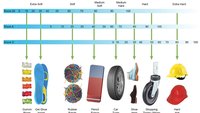Posted by: heckler
I'm starting to think this is not the best method. 2020 I filled 'er up January while in Italy, 30 km from ground zero. This year, well... I guess oil is up, that's good if you ride your bike to work.
I don't spend any time worrying about when to invest. You'll win some and lose some no matter what date you pick. If I have money that doesn't have a specific job to do in the short term I'll invest it.
Biking places is a great idea most of the time. I did use the high gas prices as a reason my GF should ride with me from the house to the trails in Cumberland [~15kms each way]. We cut back on our meat consumption when grocery prices went up the last while. So you can usually find a positive spin on stuff like this.







